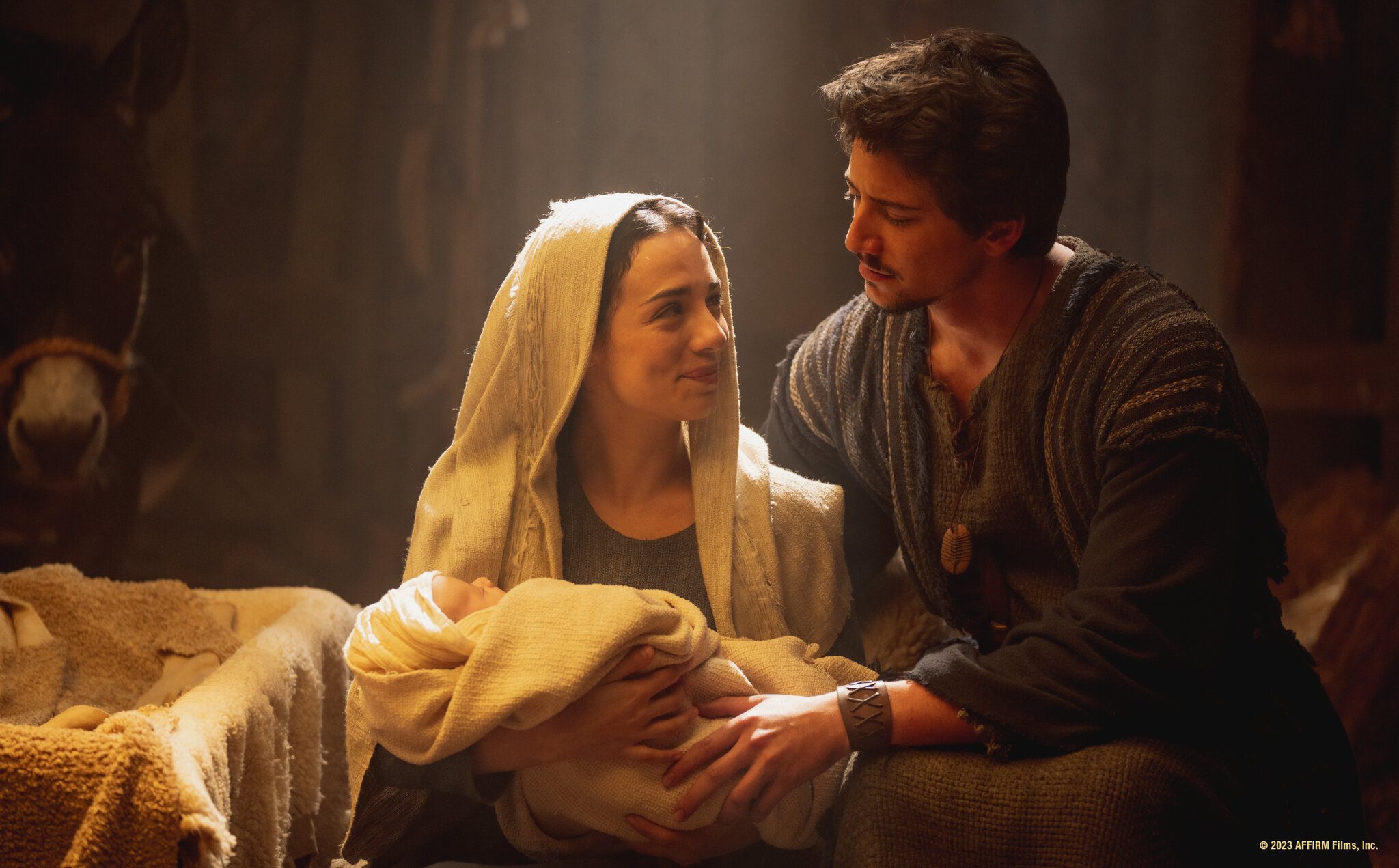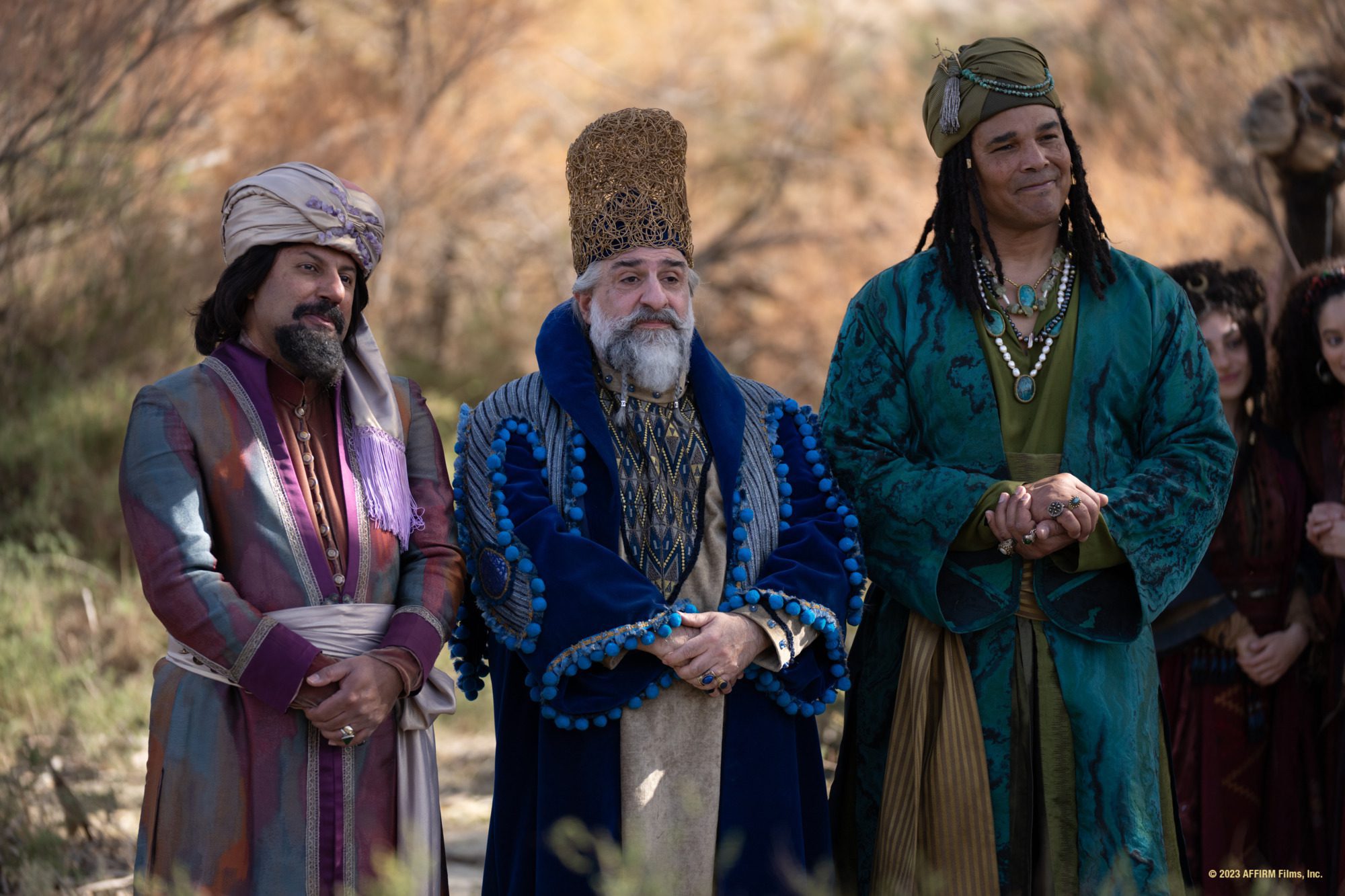Let’s be honest. If you’ve grown up in a church setting, you’ve probably felt that it’s hard to keep the Christmas story feeling fresh year after year.
Each season, churches want to communicate the power of the Nativity but find themselves hitting the same key notes and passages. As result, it’s somewhat refreshing to see a film try to both honour its source material while giving it new life. This is certainly the case with Journey to Bethelehem, a film that wants to revel in the pageantry of Christianity’s highest season yet also move its parts around the board with a playfulness that we rarely see from this sort of film.

Directed by Adam Anders, Journey to Bethlehem is the latest retelling of the classic Nativity story. In the film, we meet Mary (Fiona Paloma), a young, 1st century Jewish woman betrothed to a man that she’s never met. Before they wed, Mary hears from an angel that she’s pregnant and that he will become King of the Jews. Understandably, husband-to-be Joseph (Milo Manheim) is torn between his hurt and his desire to trust his beloved. Then, as word begins to spread, King Herod (Antonio Banderas) becomes livid, sending out his troops to find and kill the baby before his reign is disrupted.
Admittedly, there’s a lot to like about this Journey. For example, there’s a certain sense of pageantry about this portrayal of the Christmas story that we simply haven’t seen in other iterations. Musical numbers absolutely pop and even create unique character insights. Performances displaying Joseph’s conflict within himself and Mary’s frustration over a culture that seeks to control women add a modern twist to the story. Even Banderas’ “villain song” is particularly gleeful.

Some of the changes to the source material even genuinely benefit its storytelling. For example, Mary’s determination and strength is an important aspect of her character that is often neglected. By emphasizing the cultural practice of forcing her to marry, Journey to Bethlehem attempts to rectify this by insisting that their marriage was one of love, not convenience. (In fact, at one key moment, the young couple even take matters into their own hands.) New elements such as the creation of Herod’s son or even the realization why they end up at ‘the Inn’ add some character elements that serve the story.
Even so, one has to admit that the results remain a bit of a mixed bag. Although the film never strays too far from the story’s key points, some newer moments simply don’t land. Scenes like as a meet-cute between Mary and Joseph and the Wise Men (or ‘wise guys’) arguing about the silliness of their gifts are inoffensive but simply don’t add anything to the story.

In terms of performances, few are particularly memorable. (Though, having said this, Banderas is positively merry as the malevolent King Herod. As a man determined to retain his power at all costs, Banderas is over-the-top evil at every possible turn and, frequently, the most fun to watch.)
What’s most interesting though is the way that the film closes with a quasi-apology. Ending with a title screen pointing out that they had good intentions despite playing with the story, Journey to Bethlehem knows it’s facing a tough crowd. Sometimes, churches can struggle seeing their Scriptures with fresh lenses and it appears that Journey wants to head them off at the pass.
But it shouldn’t be too worried.
In the end, Journey to Bethlehem never strays far enough from the narrative to challenge the key elements that churchgoers appreciate. There’s no doubt that this film keeps the traditional story feeling fresh and unique, even if the Journey is far from perfect.
Journey to Bethlehem is available in theatres on Friday, November 10th, 2023.





